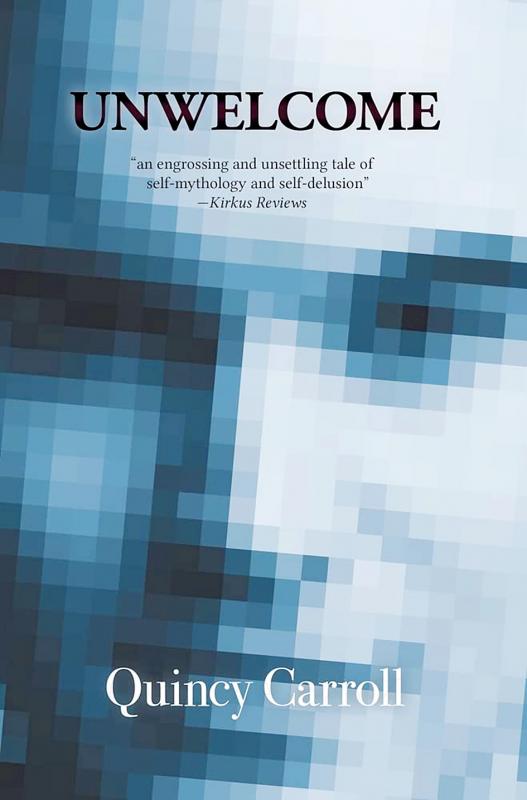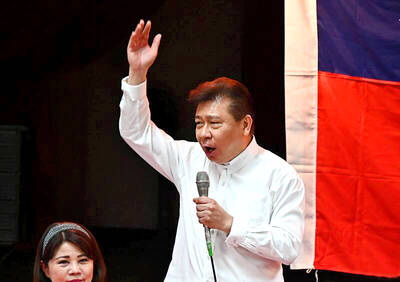Good books frequently have strong starts. “It is a truth universally acknowledged ...” (Pride and Prejudice), “It was the best of times, it was the worst of times, it was the age of wisdom, it was the age of foolishness ...” (A Tale of Two Cities), “A turtle which explorer Captain Cook gave to the King of Tonga in 1777 died yesterday. It was nearly 200 years old.” (Do androids dream of electric sheep?), “Then there was the bad weather” (A Movable Feast).
So let’s see how a new novel from Taiwan’s Camphor Press compares. “Then there was the time when you worked for your friends Sam and Paul in Changsha ...” Not bad. Even with the nod to Hemingway, who is mentioned quite early on in the novel, I felt curious and read on.
The novel begins with its central character, Cole Chen, a half-Taiwanese American. His father, Alan, was born in the US but his parents were Taiwanese. Cole has been living in China, in Changsha in Hunan Province, working importing a strong Belgian beer into the country. His colleagues are two other Americans, Sam and Paul, and Cole spends his time when he’s not working with the beer trying to complete a first novel. He’s blissfully happy in China, but for reasons even he doesn’t fully understand decides to return, at least for a time, to San Francisco.

Back in the US, he sleeps on the sofa in the apartment of his brother, Abraham, but as the novel opens is asked to leave for the weekend because some people are coming to stay. These turn out to be their parents. Cole therefore moves to stay, briefly he thinks, with a former classmate, Jayden. They drink and smoke together, and then have a leisurely Saturday lunch at a restaurant where they encounter another former classmate, Merritt.
The narrative, which had begun in Changsha, now reverts to China where Cole, Sam and Paul are on their way to Beijing. Cole travels by train. The book thus begins with switches from earlier happenings in China to more recent events in America, with the Chinese sections printed in italics.
Disconnected sections follow featuring earlier memories of a Mandarin-student school trip to Beijing, and a raucous party in Las Vegas during which Cole has his first experience of cocaine, which leaves him looking skewed but feeling OK. When’s the plot going to get underway, you wonder.
Next we have Cole back in China and meeting a girl, Harmony, who wants to show him her paintings but whose accomplices cheat him. These paintings turn out to be typical of what you might find in China, we’re told — “windswept horses, languid tigers, ink washes of mountains, plum blossoms, carp.”
The next section deals with Cole’s bad relations with his mother, Elizabeth. and then we’re back in Hunan where Cole meets Harmony again at a birthday party. When she leaves he follows her but fails to make contact. Good-looking women think they can get away with anything, he muses.
Then it’s back to the US, then China again, where things with Harmony become significantly advanced. At work, however, Sam and Paul inform him that business is bad and they can’t afford to keep him in the company any longer.
In a way this is quite a sophisticated narrative, using phrases and words like “Occam’s razor,” “ignis fatuus” and “octahedron.” Peter Hessler gets a mention, as does David Foster Wallace. Yet its subject-matter is the day-to-day lives of relatively ordinary people.
At one point Cole describes the novel he is writing as a “memoir,” later defining this as “fictionalized autobiography.” Maybe this is what Unwelcome is too. This would explain the numerous characters, many of whom don’t get much development, and the general lack of a tension-fueled plot in the book as a whole. Cole even admits at one point that his memoir is somewhat lacking in plot.
Back in San Francisco, Cole has problems telling a former college friend about his love-life, or lack of it, in China. But earlier he’s been to Hong Kong on a visa run, stumbles by mistake into a gay bar in Lan Kwai Fong (an expatriate street in the Central area), then meets up with an American with dreadlocks who proposes a trip to Lantau Island. But this is never described, and one suspects an authorial cut at this point.
This novel is certainly well worth reading. It may well be the case that many of the characters are not developed to any great extent, but this doesn’t really affect the story’s readability. Secondly, the plot is late getting going, but get going it does eventually. Thirdly, the author has a sophisticated mind, and a sophisticated style to go with it. And lastly, the novel throws considerable light on expat life in provincial China in relatively recent times.
More on Quincy Carroll’s style: what marks it most is its range. The raucous, drunken and drugged exploits of college-age but well-heeled American students is brilliantly evoked, but then so are the lives of various groups in China — young Americans embarking on business ventures, Chinese anxious to know foreigners in a Chinese province where there aren’t that many, and so on.
There remains the issue of the title. It’s not clear, to me at least, who is unwelcome and where.
The book ends with an epilogue in Chinese, later translated into English. It’s a monologue by Harmony that ponders about what really happened between her and Cole.
I initially wondered whether this was a book for me, but was won over quite early on. If the author has himself experienced everything that happens in its pages, he’s not had a bad life so far, when all’s said and done.

March 10 to March 16 Although it failed to become popular, March of the Black Cats (烏貓進行曲) was the first Taiwanese record to have “pop song” printed on the label. Released in March 1929 under Eagle Records, a subsidiary of the Japanese-owned Columbia Records, the Hoklo (commonly known as Taiwanese) lyrics followed the traditional seven characters per verse of Taiwanese opera, but the instrumentation was Western, performed by Eagle’s in-house orchestra. The singer was entertainer Chiu-chan (秋蟾). In fact, a cover of a Xiamen folk song by Chiu-chan released around the same time, Plum Widow Missing Her Husband (雪梅思君), enjoyed more

Last week Elbridge Colby, US President Donald Trump’s nominee for under secretary of defense for policy, a key advisory position, said in his Senate confirmation hearing that Taiwan defense spending should be 10 percent of GDP “at least something in that ballpark, really focused on their defense.” He added: “So we need to properly incentivize them.” Much commentary focused on the 10 percent figure, and rightly so. Colby is not wrong in one respect — Taiwan does need to spend more. But the steady escalation in the proportion of GDP from 3 percent to 5 percent to 10 percent that advocates

From insomniacs to party-goers, doting couples, tired paramedics and Johannesburg’s golden youth, The Pantry, a petrol station doubling as a gourmet deli, has become unmissable on the nightlife scene of South Africa’s biggest city. Open 24 hours a day, the establishment which opened three years ago is a haven for revelers looking for a midnight snack to sober up after the bars and nightclubs close at 2am or 5am. “Believe me, we see it all here,” sighs a cashier. Before the curtains open on Johannesburg’s infamous party scene, the evening gets off to a gentle start. On a Friday at around 6pm,

A series of dramatic news items dropped last month that shed light on Chinese Communist Party (CCP) attitudes towards three candidates for last year’s presidential election: Taiwan People’s Party (TPP) founder Ko Wen-je (柯文哲), Terry Gou (郭台銘), founder of Hon Hai Precision Industry Co (鴻海精密), also known as Foxconn Technology Group (富士康科技集團), and New Taipei City Mayor Hou You-yi (侯友宜) of the Chinese Nationalist Party (KMT). It also revealed deep blue support for Ko and Gou from inside the KMT, how they interacted with the CCP and alleged election interference involving NT$100 million (US$3.05 million) or more raised by the